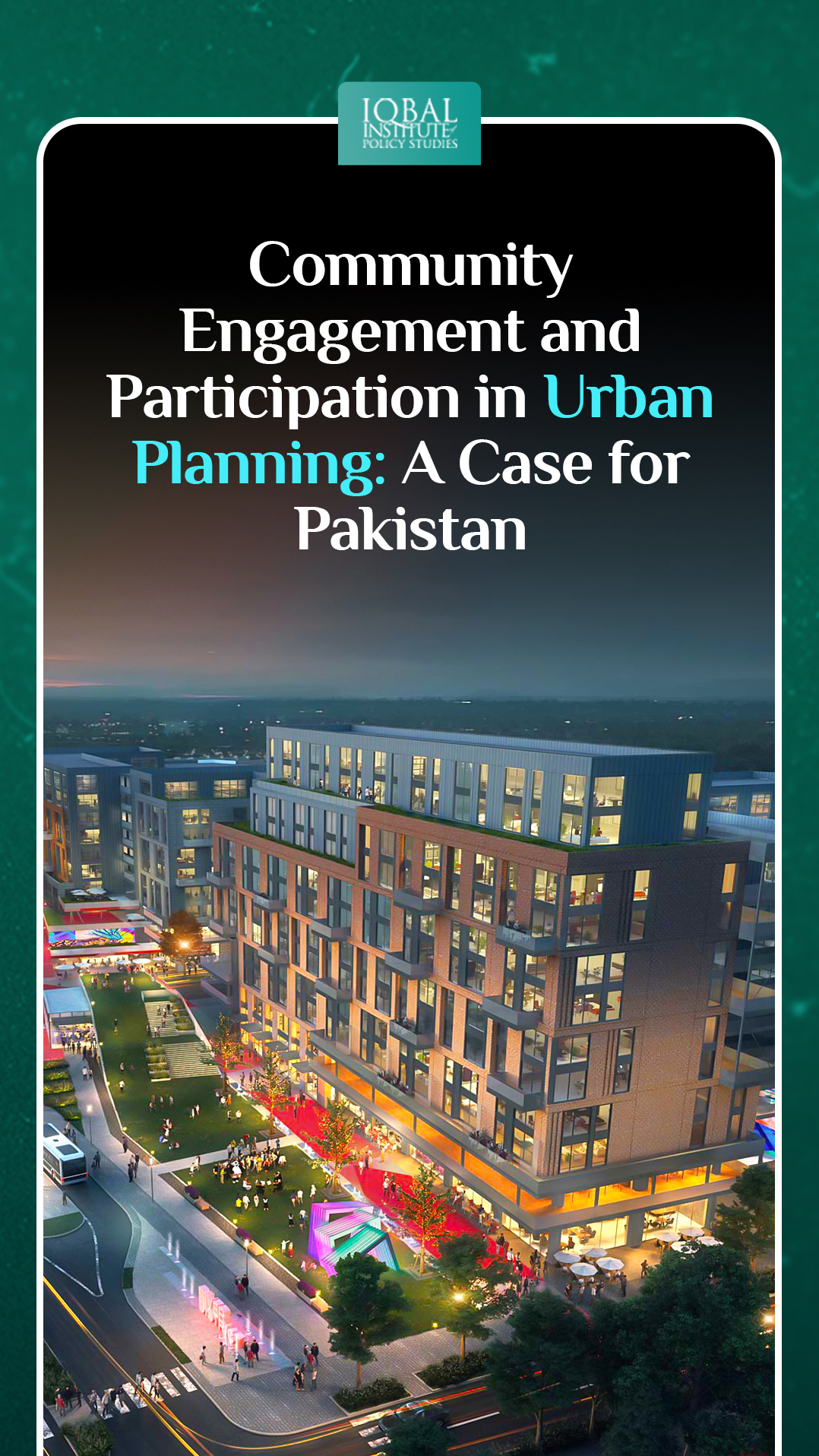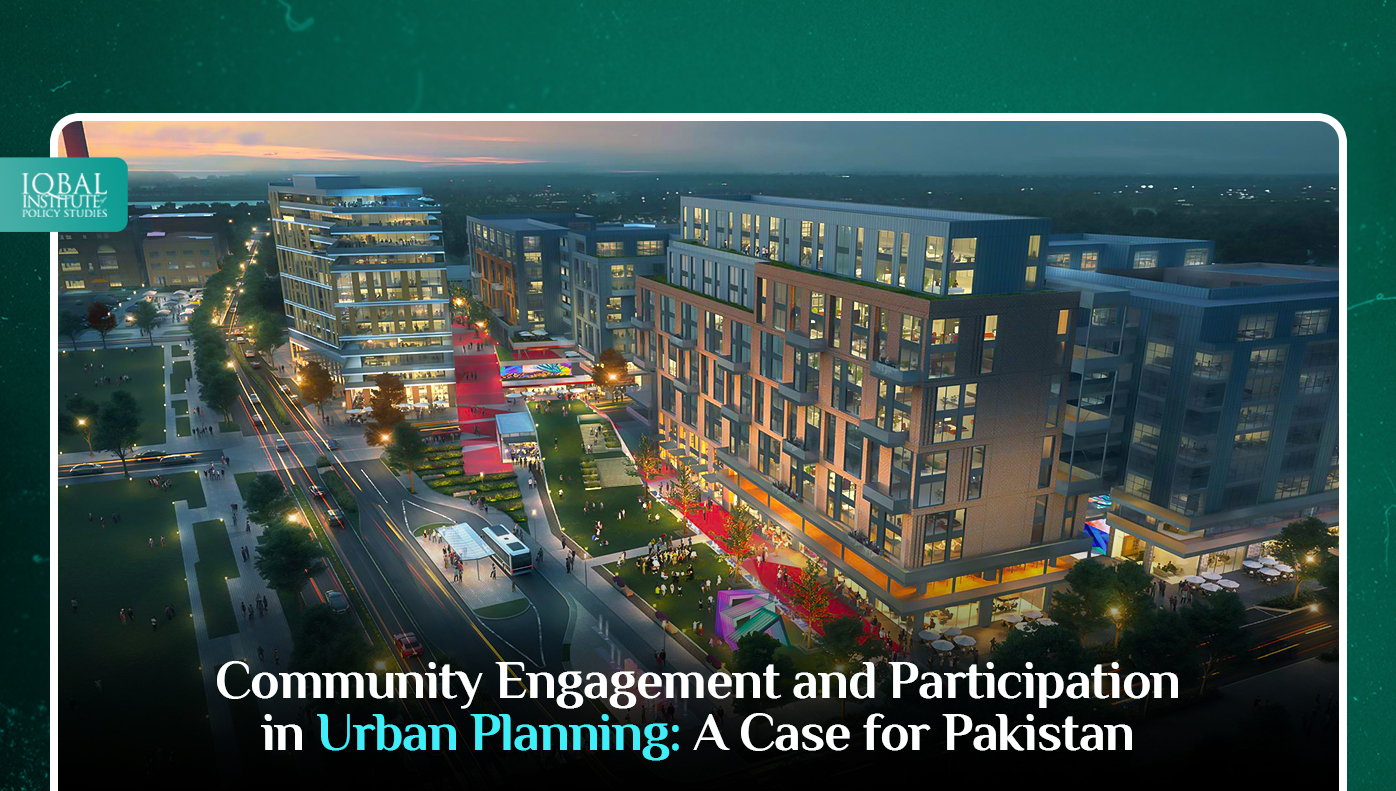Urbanization is a global phenomenon, and Pakistan is no exception. The rapid growth of cities in Pakistan brings both opportunities and challenges. Effective urban planning is crucial to ensure that cities are well-organized, sustainable, and capable of improving the quality of life for their residents. One essential aspect of urban planning is community engagement and participation. In this blog, we will explore the significance of involving communities in the urban planning process in Pakistan, the benefits it offers, the challenges it poses, and successful case studies that demonstrate its positive impact.
The Importance of Community Engagement in Urban Planning
Community engagement refers to the active involvement of local residents, businesses, and other stakeholders in the planning and decision-making processes that shape their communities. In the context of urban planning, community engagement is essential for several reasons:
Local Knowledge
Community members possess valuable local knowledge, including insights into the area’s history, culture, and social dynamics. This knowledge can be harnessed to develop plans that respect and preserve the community’s unique character.
Needs Assessment
Communities are best positioned to identify their needs and priorities. Engaging them in the planning process ensures that these needs are addressed and that solutions are tailored to local demands.
Ownership and Empowerment
When communities are active participants in urban planning, they develop a sense of ownership and responsibility for their neighborhoods. This empowerment can lead to more successful implementation and maintenance of projects.
Social Inclusivity
Engaging a diverse range of community members ensures that planning efforts are inclusive and considerate of the needs of vulnerable or marginalized populations.
Conflict Resolution
Involving the community from the outset can help identify potential conflicts and challenges, allowing planners to address them proactively.
Challenges in Community Engagement
While community engagement is vital, it is not without its challenges, which are especially pronounced in the context of Pakistan:
Lack of Resources
Many communities in Pakistan lack the resources, expertise, or access to information needed to participate effectively in urban planning processes.
Power Dynamics
There may be power imbalances between local communities and the government or development authorities, which can impede meaningful participation.
Education and Awareness
Communities may lack the knowledge and awareness of their rights and the urban planning process, making it difficult for them to engage meaningfully.
Cultural and Linguistic Diversity
Pakistan is a diverse country with multiple languages, cultures, and traditions. Communicating and engaging with different communities can be a challenge.
Political Interference
Political interests can sometimes supersede community interests in the planning process, leading to ineffective engagement and biased outcomes.
Case Studies of Successful Community Engagement in Pakistan
Aga Khan Planning and Building Service Pakistan (AKPBS)
AKPBS has implemented community-based development projects in various regions of Pakistan. They engage with local communities to improve infrastructure, housing, and services while preserving cultural heritage. Their approach involves community mobilization, capacity building, and fostering a sense of ownership among residents.
Karachi Neighborhood Improvement Project (KNIP)
KNIP, a collaboration between the World Bank and the Government of Sindh, aims to improve living conditions in selected neighborhoods in Karachi. It emphasizes community participation, involving residents in identifying needs and prioritizing development interventions. KNIP also provides training to local community organizations to strengthen their capacity to engage effectively in planning processes.
Participatory Development Initiatives (PDI)
PDI is a non-governmental organization working in Pakistan’s urban slums. They engage communities in planning and implementing projects related to sanitation, health, education, and infrastructure. PDI’s success lies in its commitment to building local leadership and involving residents in decision-making.
Steps Toward Effective Community Engagement in Pakistan
Awareness and Education
Initiatives should focus on educating communities about their rights and the urban planning process. This can be achieved through workshops, awareness campaigns, and community meetings.
Empowerment
Community members should be empowered to voice their opinions and concerns. This can be done by building local leadership and creating platforms for open dialogue with decision-makers.
Inclusivity
Efforts should be made to include all segments of society, ensuring that marginalized groups, women, and minorities have a say in planning decisions.
Transparency and Accountability
The planning process should be transparent, and mechanisms for accountability should be established to prevent corruption and abuse of power.
Capacity Building
Communities should be provided with the tools and knowledge needed to engage effectively in planning processes.
Conclusion
Community engagement and participation are essential components of successful urban planning in Pakistan. The benefits of involving local communities in shaping their neighborhoods are numerous, including improved decision-making, more sustainable development, and increased social cohesion. However, challenges persist, and addressing them requires a concerted effort from government bodies, non-governmental organizations, and the communities themselves. By learning from successful case studies and taking steps to empower and educate local residents, Pakistan can move closer to realizing its vision of sustainable, inclusive, and well-planned urban areas that enhance the quality of life for all.
This article is written by Radma Noman. Radma is a research analyst at the Iqbal Institute of Policy Studies (IIPS).



Leave a Reply